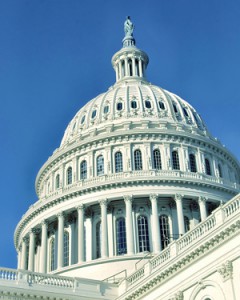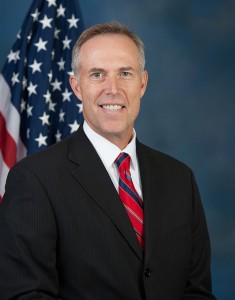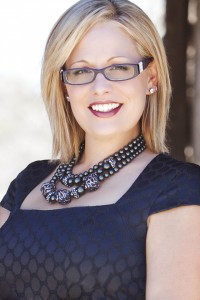Religiously Unaffiliated Members of Congress: Are They Atheists?

Last week on The Colbert Report, Rep. Jared Huffman, who has identified in the past as a Roman Catholic, alluded to Stephen Colbert that he may be an atheist or agnostic. Humanists have reason to celebrate if this turns out to be true—since Rep. Pete Stark left office in 2013, there have been no openly identified atheists in Congress.
Nearly every prominent religious denomination is represented Congress, including Jews, Muslims, Protestants, Catholics, Buddhists, and Hindus—and this is a good reflection of our religiously diverse country. But what about the religiously unaffiliated, which today make up nearly 20% of the U.S. population?

Rep. Jared Huffman (D-CA-2)
Along with Rep. Huffman, those listed as “unspecified” under religion include Senators Michael Bennet and Tammy Baldwin, and Representatives John Tierney, Suzanne Bonamici, Judy Chu, Kyrsten Sinema, Tammy Duckworth, Bill Foster, Earl Blumenauer, and Mark Pocan. Could some of these government officials be atheists or humanists? Perhaps, yet they likely fear the political consequences associated with identifying as a nonbeliever—polls still show only 54% of Americans supporting the idea of an atheist for president.
Some of these “religiously unaffiliated” politicians have given signs of their secular nature. For example, Rep. Sinema, who was the first member of Congress to write “none” next to her religious affiliation, was sworn in to office she took the oath of office with her hand on the United States Constitution instead of the Bible. (Wouldn’t it be wonderful if all our members of Congress did the same?) A spokesman for Sen. Baldwin told a newspaper that Baldwin was “baptized Episcopalian but that the term no longer describes her religiosity,” and she now uses the term unaffiliated. On the flip side, Rep. Blumenauer is reported on some sites as a non-denominational Christian.

Rep. Krysten Sinema (D-AZ-9)
In an ideal world, an elected official’s religious belief—or lack thereof—shouldn’t matter. But some argue that it’s nearly impossible to separate a person’s core values from their support or opposition of certain issues. We can guess how evangelical Christian politicians are likely to vote when it comes to same-sex marriage or increasing the minimum wage—and we’d likely be right. So it’s important to know where our elected officials stand, and their religious belief is often indicative of how they would vote.
But in a country where one-in-five identify as religiously unaffiliated, it’s time to shed the myth that religious affiliation is a requirement for getting elected. Today, thirty-seven members of Congress (up from a reported twenty-four) identify as an atheist or agnostic but are unwilling to go public. This is partly why the American Humanist Association created the Freethought Equality Fund PAC, the first fully-funded political action committee working to elect nontheistic Americans to public office. The formation of this PAC is a major step forward toward informing political candidates of the values of the non-religious constituency. The humanist community is a leading advocate of LGBT rights, women’s equality, and scientific research—and in these areas, Congress needs as much help as they can get.
It’s time for Congress to reflect America’s religious diversity—which includes atheists, humanists, and the non-religious.
